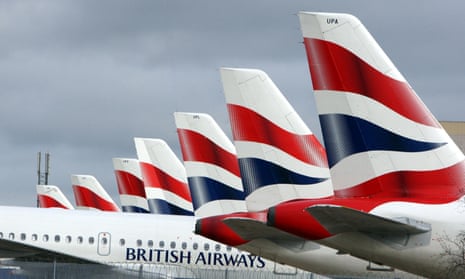Airline bosses should apologise instantly, roll up their sleeves and join the passengers next time they suffer a British Airways-style PR crisis, executives have advised.
Speaking at the International Air Transport Association’s annual summit, Oscar Munoz, the chief executive of United Airlines, who was lambasted for his non-apology to a passenger who was injured when forcibly removed from an overbooked flight, said: “We have to become more flexible and more communicative about things.”
But while Munoz said he wanted to defend his 85,000 staff, he added that he had ignored his own instincts to apologise because of “the force on me from many folks advising me”.
He said: “In a crisis of that magnitude, evolving that quickly, you tend to learn and talk to too many people.” With more time, he said, “my initial response with my name on it would have been different”.
Peter Bellew, the chief executive of Malaysia Airlines, said the rise of social media had made a swift response imperative. Bellew joined the airline after the loss of two passenger jets in 2014 with hundreds of fatalities. Last week a passenger claiming to have a bomb caused panic on a Malaysia flight from Melbourne, forcing the plane to turn back before it was stormed by police.
Bellew said: “I think you’ve got 15 minutes or less to say sorry. People were livestreaming on Facebook what was happening, because the aircraft was under 14,000 feet. That’s the pressure you’re under now. It’s horrendous.”
When a flight from London to Kuala Lumpur was hit by severe turbulence last year, Bellew sent senior staff to greet affected passengers. “You can’t sit in silence any more.” He said by getting on the scene in the terminals, “you can stop the whole thing in that instant”.
Enrique Beltranena, the chief executive of Mexican low-cost airline Volaris, said recent events had made him reflect on how to respond. “We cannot afford to be mechanised in terms of treating passengers: passengers are people and need to be treated with respect. We learned a lot from [United].”
Crisis response was on the agenda after BA stranded 75,000 passengers when a technician switched a power supply off and on at a data centre, scrambling its systems and forcing it to cancel all flights from Heathrow and Gatwick at the start of the bank holiday weekend.
Willie Walsh, the chief executive of BA’s owner, IAG, admitted on Monday that the airline had got its communications wrong.
Yet the PR fallout is continuing, with passengers still complaining of not being contacted, let alone having their compensation claims processed – and some still to be united with their baggage.
Scott and Dianna Smeal, on holiday from Atlanta, Georgia, were caught up in the chaos for hours en route with BA from Bergen to Glasgow, when their bags were lost. They had still received no information about the location of their luggage nine days later. “It has been a completely frustrating experience,” Smeal said.

Comments (…)
Sign in or create your Guardian account to join the discussion